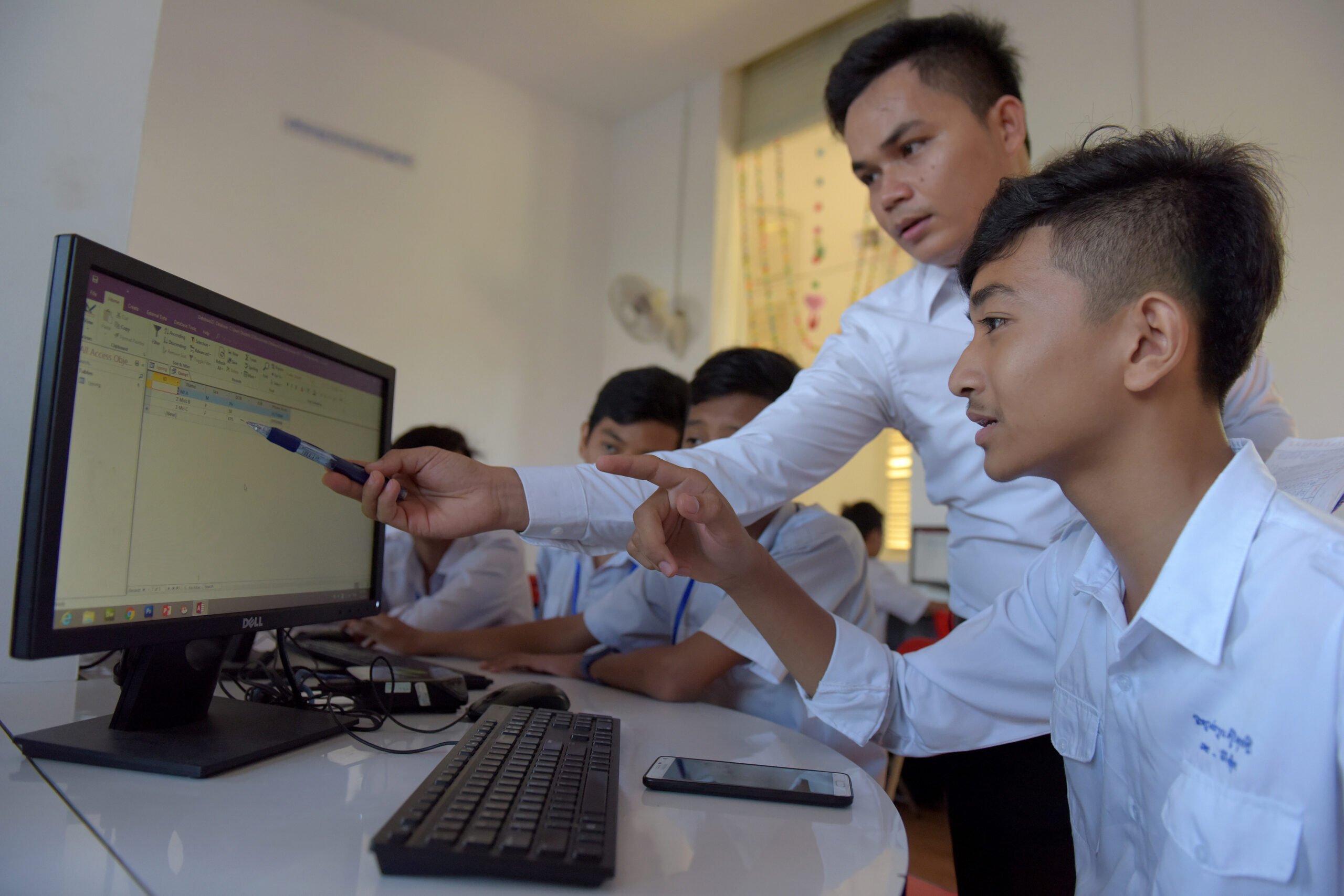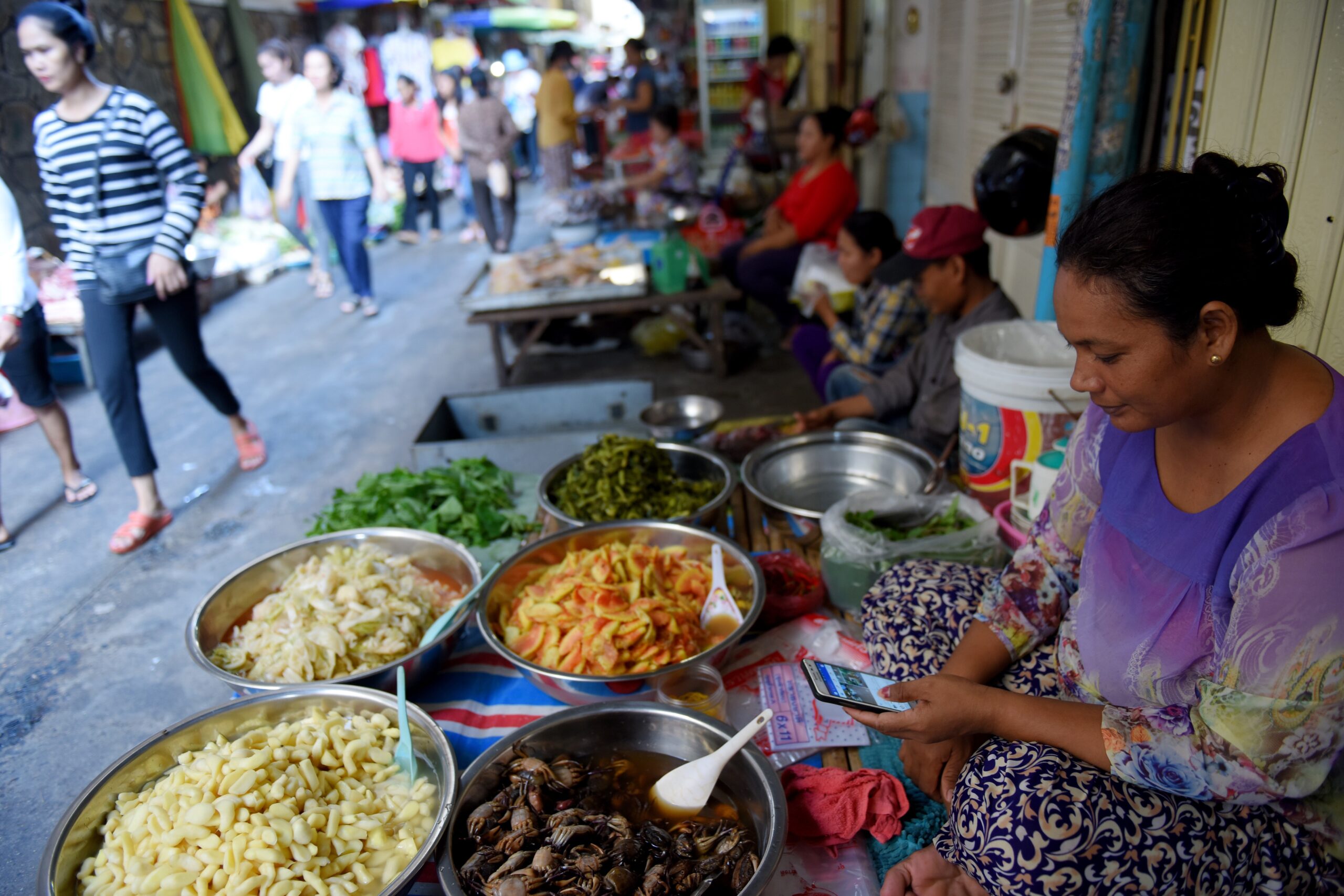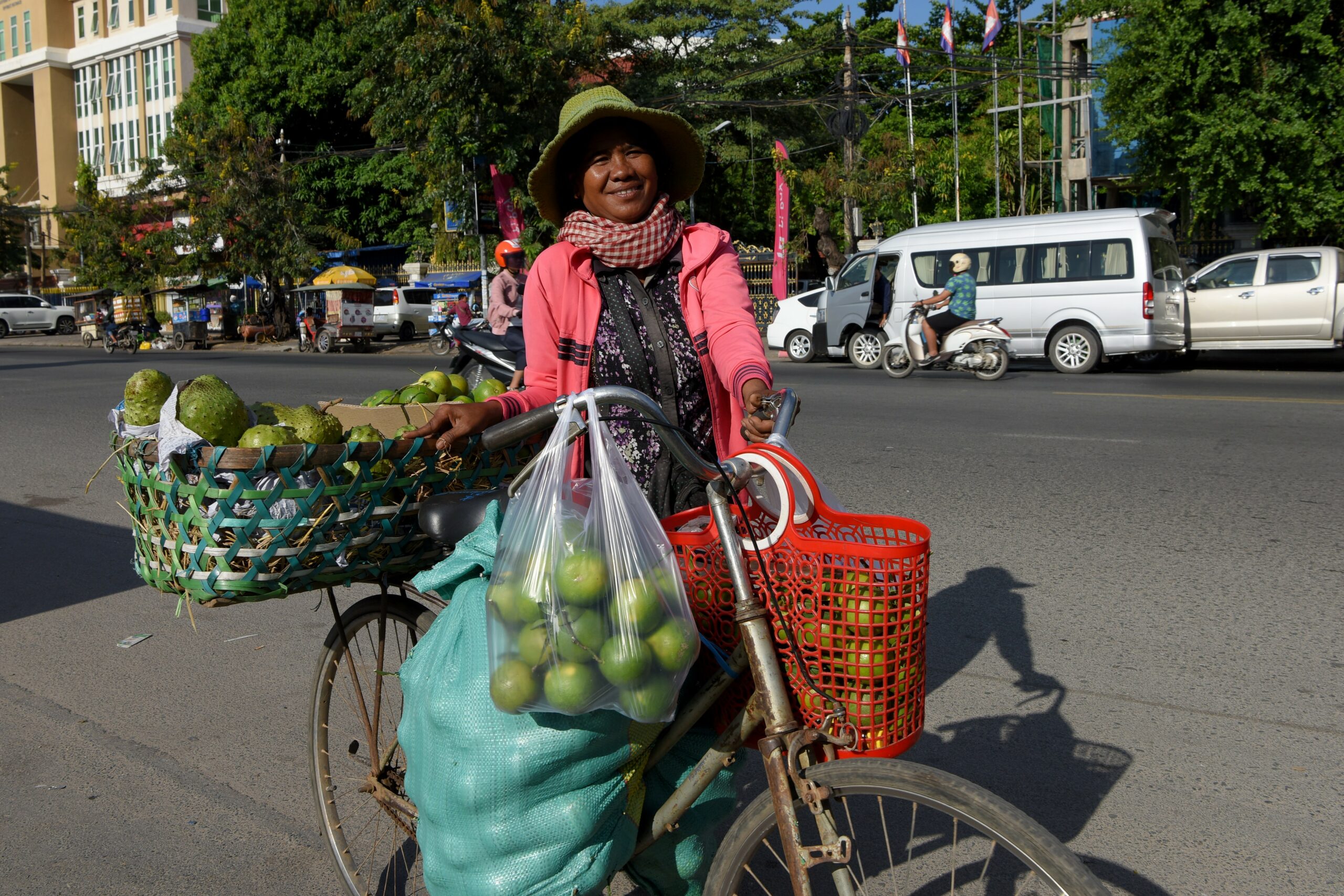Sao Keng earns a living with her wholesale grocery business near Dey Huy market in Phnom Penh. But an attempt to expand the business was thwarted when a bank rejected her loan request due to factors plaguing many female entrepreneurs in Cambodia.
“They said my income generation is not enough for a loan requirement, so there is a need for a guarantor and collateral, which I am not able to meet,” she said.
The small and medium-sized enterprise (SME) has become a driver of Cambodia’s economic growth, contributing to social stability and private sector expansion by generating income for people with limited education and employment skills.
These small but vital businesses account for 70% of the Kingdom’s employment and 58% of its GDP, according to Open Development Cambodia, 2020.
Women dominate Cambodia’s SMEs and have become a critical catalyst in economic growth and sustainable development. Up to 61% of SMEs and microbusinesses are owned and managed by women and that refer as Women-Owned Small and Medium Enterprises (WSMEs), according to Ith Samheng, the minister of labour and vocational training.
Among those women-owned ventures, 62% are microbusinesses with fewer than 10 employees, 26% are small enterprises with 10 to 49 employees and the remaining 12% are medium-sized enterprises employing 50 to 249 people, Cambodia Women Enterpreneurs Association, 2021.
Behind these positive statistics, there is a more nuanced and less cheerful reality. The sector is dominated by women partly because they do not have access to the digital tools and skills needed to make their enterprises grow.

Cambodia’s women-owned small and medium-sized enterprises (WSMEs) struggle to find time to participate in development programmes, even e-learning opportunities, as they juggle business and family obligations due to the traditional belief that women are responsible for domestic work. This obligation results in Cambodian women having fewer social networking opportunities compared to men, according to a 2020 KAS Cambodia case study.
The lack of time also limits their access to information and useful digital tools including sales and marketing tools including social media and their company websites, financial management tools such as Monefly, Google Spreadsheet and Excel Sheet and collaboration tools including Microsoft Teams and Trello.
These digital tools were not considered a top priority by the owners of WSMEs until the Covid-19 pandemic. Since then, they have encountered difficulties accessing courses in vital business skills such as communication, finance and networking.
Limited language skills, especially in English, is another obstacle for some women in accessing more information. This problem is less acute for young entrepreneurs who are more likely to speak English.
In Cambodia, roadblocks such as lack of tools and skills support, hold back women’s potential and opportunities in spite of the growing role of SMEs. With adequate support, Cambodia’s women-owned SMEs could achieve sustainable performance and grow.
Challenges for women
Cambodian women face particular difficulty in accessing resources to strengthen their businesses such as financing and capacity development opportunities including growth metrics monitoring, networking outlets and skills education.
A 2019 report from the International Finance Corporation (IFC) indicated women-owned businesses in Cambodia were predominantly micro-sized and informal. This has been a longstanding challenge in gaining financing, especially bank loans.

The barriers to accessing financial services are linked to several factors, including limited financial education and a lack of social trust, according to the report.
Rules for bank loans were more prohibitive for women entrepreneurs, who encountered more problems in pledging collateral, with 66% of SMEs applying for loans in 2016 suffering rejections due to a lack of guarantees or collateral. In focus group discussions, 13% of female business owners said they experienced problems with pledging collateral compared to 9% of men, according to the IFC report.
Participants in a 2021 survey of women business owners in several provinces conducted by the Cambodia Women Entrepreneurs Association cited difficulties in obtaining bank loans as one of their biggest challenges.
In addition to financial barriers, WSMEs in Cambodia have met challenges in connecting with capacity-development programmes. Some female business owners found difficulties in balancing their time between networking and learning opportunities and other business and family obligations.
“Most information and learning sources were developed in foreign languages, which has limited access to digital resources and e-learning. Another challenge is time constraints, as women owners play a triple role as a caretaker in the household, entrepreneur, and social worker,” a female entrepreneur who was interviewed for a KAS case study said.
Increased gender equality in access to financial services and capacity development activities is critical for the sustainable growth of Cambodia’s women-owned SMEs and the national economy.
Many government initiatives meant to help Cambodian businesses are not reaching these entrepreneurs.
During the Covid-19 pandemic, the small size of many female-owned businesses prevented them from accessing other government financial relief.
“Because most women entrepreneurs are still operating and starting small and informal micro-businesses, it is difficult to obtain official support,” The Chhunhak, director-general of gender equality and economic development at the Ministry of Women’s Affairs (MoWA), said in an interview with online news outlet Cambodianess.
Development capacity for Cambodian women should not depend solely on NGO and international partner projects. To produce more sustainable outcomes, there should be a focus on strengthening awareness of women’s roles in society and initiating training programmes to advance business performance and promote resilience following an unexpected crisis such as the pandemic.
MoWA and the National Bank of Cambodia should work together to provide flexible lending conditions to women-owned micro-businesses and WSMEs. Suspending debt collection and offering loans with lower interest rates should also be considered to assist women in expanding and recovering from the economic impact of Covid-19.

Female entrepreneurs are caught in a self-fulfilling cycle in which they start small and are kept small by factors beyond their control.
Supporting women-owned businesses and helping them break the pattern of exclusion and limited opportunities is an investment in women’s economic empowerment and the future of Cambodia’s inclusive economic growth.
Heng Molika is a junior research fellow at Future Forum.


